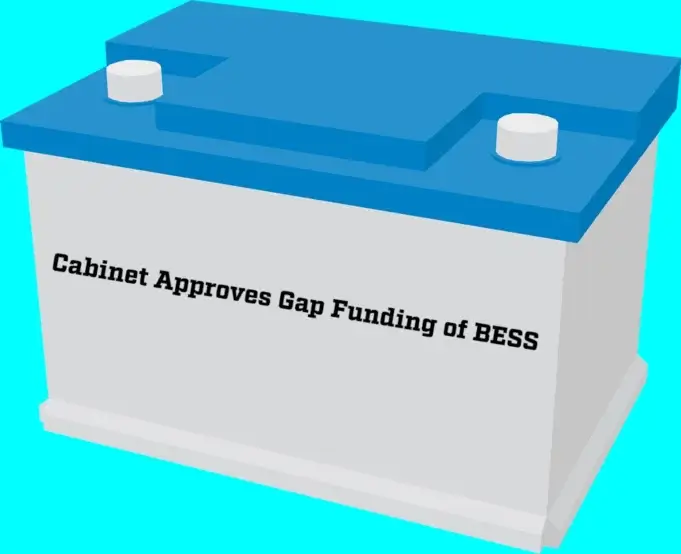The Union Cabinet, led by the Prime Minister, has given its approval to the Viability Gap Funding (VGF) Scheme for the development of Battery Energy Storage Systems (BESS). This scheme aims to create 4,000 MWh of BESS projects by the year 2030-31, with financial support of up to 40 percent of the capital cost in the form of budgetary support known as Viability Gap Funding (VGF). This decision marks a major milestone in the government’s ongoing efforts to promote environmentally friendly initiatives, and it is expected to reduce the cost of battery storage systems, thus making them more financially feasible.
The primary goal of this scheme is to leverage the potential of renewable energy sources like solar and wind power to provide clean, dependable, and cost-effective electricity to the public. The VGF for BESS Development Scheme, with an initial budget allocation of Rs 9,400 crore, including a budgetary support of Rs 3,760 crore, underscores the government’s dedication to sustainable energy solutions. By offering VGF support, the scheme aims to achieve a Levelized Cost of Storage (LCoS) ranging from Rs 5.50-6.60 per kilowatt-hour (kWh), thus making stored renewable energy a viable option for managing peak power demand across the country. The VGF will be disbursed in five installments linked to the various stages of BESS project implementation.
To ensure that the benefits of the scheme reach consumers, a minimum of 85 percent of the BESS project capacity will be allocated to Distribution Companies (Discoms). This approach not only enhances the integration of renewable energy into the electricity grid but also reduces waste and optimizes the utilization of transmission networks, thereby minimizing the need for costly infrastructure upgrades.
The selection of BESS developers eligible for VGF grants will be conducted through a transparent competitive bidding process, promoting fair competition for both public and private sector entities. This approach encourages healthy competition and supports the growth of a robust ecosystem for BESS, attracting substantial investments and creating opportunities for related industries.
The Government of India remains steadfast in its commitment to advancing clean and sustainable energy solutions, and the BESS Scheme represents a significant step towards realizing this vision. By harnessing the potential of renewable energy and promoting the adoption of battery storage, the government aims to create a more environmentally friendly future for Indians.











